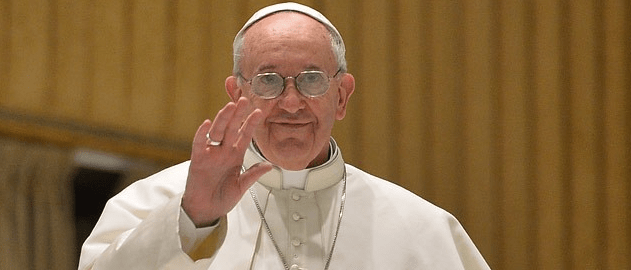
Everyone is rushing toward this day—making lists and checking them twice while trying to squeeze last-minute purchases into their budgets. Advertisements are at a fever pitch, constantly reminding us of how many days there are left before this day.
But we’re not talking about Christmas. We’re talking about Tax Day. Yet like Christmas, the way we prepare ourselves for Tax Day has just as much to say about who we put our trust in: money or God.
Until a few years ago, I had a terrible relationship with money. I lived in constant fear that my money would disappear. Every time I faced an expenditure, I was filled with anxiety. I was terribly afraid that my financial goals—saving for a house, providing for children, paying for grad school—would erode and my family would left lagging behind the opportunity and growth in becoming well-established adults. I still think these are good financial goals, but the way I worried about meeting them was paralyzing at times.
Whether paying a utility bill, an invoice for a doctor’s visit, or my taxes, I would have the same level of uneasy hesitancy as if I were being prompted to throw our cash into a fire pit and let it burn. The money was mine, and no one—let alone the government—was going to pry it from my hands.
But is it, really? We work hard, put in our time, and we exhaust our energy in our jobs. And the money we receive is our hard-earned keep, right? In our achievement-driven, career ladder-climbing society, this is a huge question.
In His own way, Jesus is hard to pin down on money. He had a pragmatic approach to the value that money places on things. We often characterize Jesus as being a critic of wealth, and that is predominantly true, but then He lets a woman wash His feet with perfume that, in today’s currency, would be worth around fifty thousand dollars. It was for a very valuable purpose, and that is why Jesus says, much to the disciples’ protestations, that the action was in fact honorable. In one triumphant act, this woman was showing where her allegiance lied, and it was with definitely with God, not money.
And that’s the one hard line Jesus drew about money. He got right to the heart of the matter in Matthew 6:24, “You cannot worship both God and money.”
Christians often see Christmas as a day to show where our allegiance lies, with the common advocacy to “put Christ back in Christmas” and the push to keep “Merry Christmas” vs. “Happy Holidays.” Yet perhaps it is Tax Day that is an even better barometer of who or what we actually worship.
Money is far more than just numbers. And our reactions, emotions and attitudes toward it can tell us quite a lot.
Christians of all stripes are unhappy that their taxes go to pay for something they politically disagree with. Some Christians even refuse to pay certain taxes so that their money would not go toward government expenditures that they disagree with. Other Christians, like Shane Claiborne, live in purposeful poverty, since if you earn below a certain bracket you will not pay any taxes. But for most of us, we pay our fair share of taxes, and with that comes the murkiness of 1040 forms, federal budgets, government expenditures we dislike and even government spending that we are convinced goes against our very Christian faith. It presents quite a dilemma.
The Jews living under Roman occupation during Jesus’ life were presented with this dilemma as well. They were obligated to pay taxes, but they knew full well that the taxes were being used for things that they found contrary to their faith. It wouldn’t be hard to make the case that the Jewish people’s tax dollars were being used to pay for the administration of their own occupation, and that’s not a very pleasant way to live.
With this tension in mind, the Pharisees go to Jesus and try to trap him between His religious convictions and the Roman powers that be. When faced with the catch-22 of paying taxes, He gives us an answer that is profound yet excruciatingly hard for many of us (myself included) to accept:
“Render to Caesar the things that are Caesar’s, and to God the things that are God’s” (Matthew 22:21).
Whether begrudgingly or not, Jesus teaches us to pay our taxes. But He doesn’t stop there. He says that we are supposed to pay our dues to the government and also to His Kingdom work as well. There is no third category for “our” money to remains ours. What Jesus is saying here is that after we pay our taxes, everything else is His. This isn’t to say we must tithe whatever we don’t end up paying in taxes, rather, it’s an acknowledgement that what we have in the bank and in our wallets is a gift from God.
Jesus’s parable of the servants and the talents in Matthew 25 illustrates this point. Two of the servants used the money their master had given them to invest and reap something from the generous gift. But one servant, fearful of losing the gift, just buried it and never used it. In the parable, God reprimands the servant for not using God’s gift.
With financial burdens pressing down on us often from all sides, it’s easy to feel bitter about paying taxes. But perhaps realizing that the money was never ours in the first place can shift our attitude. If we let God lead the way with our finances, we become concerned with how God’s kingdom is being furthered in our churches, families and communities.
Tax Day is not a day of mourning; neither is it a day of celebration. It is simply a deadline. We pay our taxes, keep our chin up and then we can move on.
This Tax Day, let’s remember that God has granted us a great abundance even after we pay our taxes. And having rendered to the United States like Jesus instructed the Jews to render to Caesar, we can now look for ways to render the rest to God.
It’s a difficult passage in Scripture, but it ends with a practical and encourage “therefore” statement for the financially frustrated. Jesus says, “Therefore do not worry about tomorrow, for tomorrow will worry about itself. Each day has enough trouble of its own” (Matthew 6:34).
Sure, Tax Day has its trouble. But today, and every day, let’s leave our fears and anxieties behind. Let’s stop worrying, and start cultivating a new relationship with money that recognizes every penny, nickel and hundred-dollar bill is part of God’s wonderful provision for us, for our use, to His glory.






















